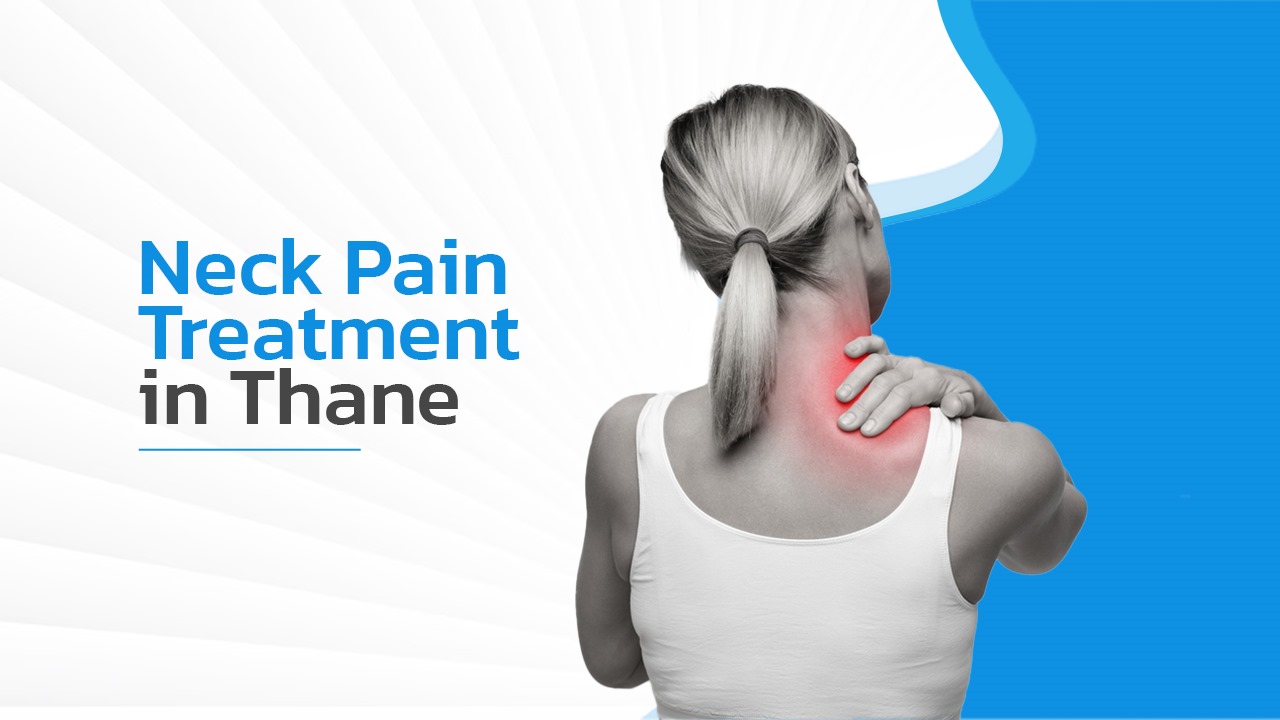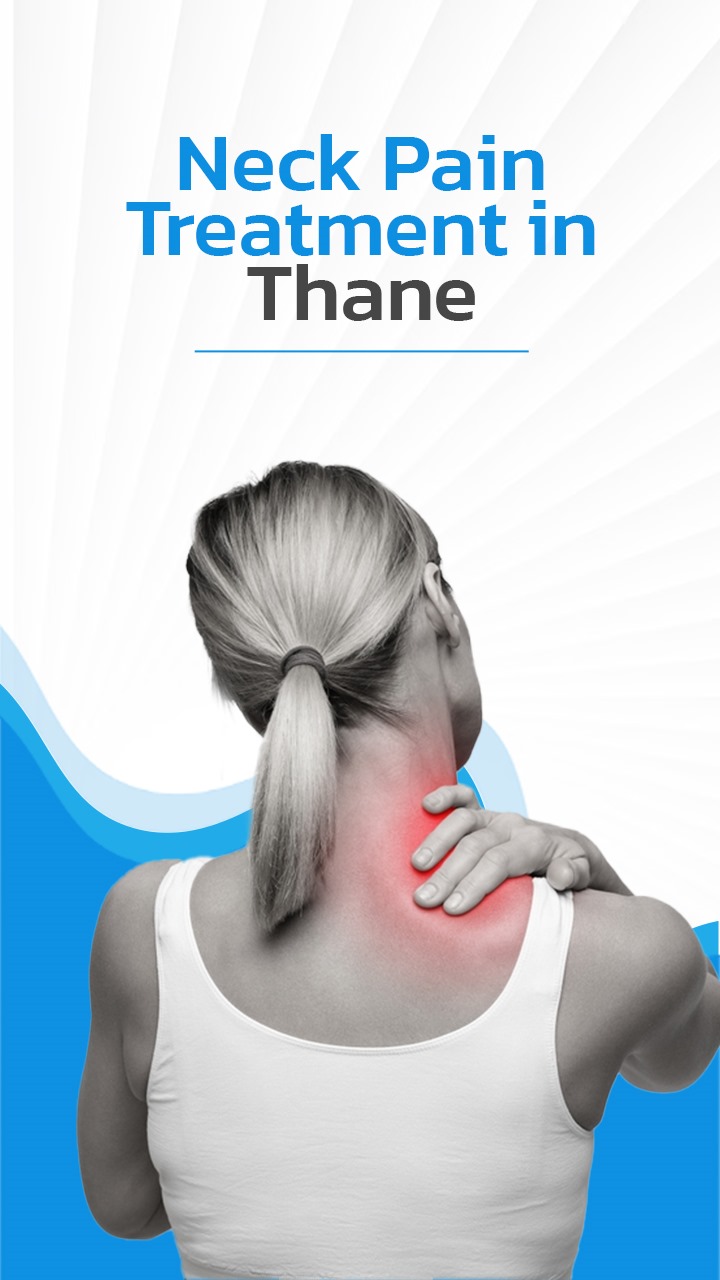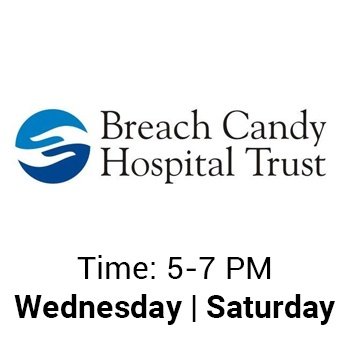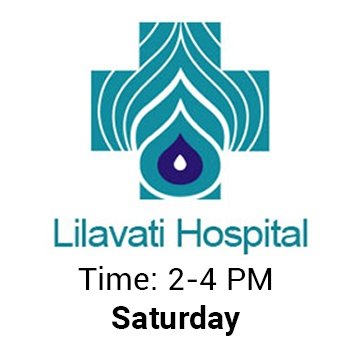


Dedicated Orthopedic clinic in Thane
16000+ Patients
4000+ Surgeries
Relieve Neck Pain and Reclaim Your Comfort at The Spine Clinic
If you’re experiencing neck pain and searching for a Neck Pain Treatment in Thane, look no further than our team of dedicated Neck pain specialist Doctor. At The Spine Clinic, we understand the impact that neck pain can have on your daily life. Our experienced professionals are here to provide comprehensive treatment options tailored to your specific needs. From muscular neck pain to cervical radiculopathy and more, we are committed to helping you find relief and improve your quality of life.
Neck pain is discomfort or pain felt in the neck region, often caused by muscle strain, poor posture, injuries, or degenerative conditions. Symptoms include stiffness, limited range of motion, and headaches. Treatment options include rest, physical therapy, medication, and lifestyle modifications. Prevention involves maintaining good posture, using ergonomic setups, managing stress, and exercising regularly. Consultation with a healthcare professional is recommended for accurate diagnosis and tailored treatment.
MEET DR. PRIYANK PATEL
Dr Priyank M Patel is a Co-Founder and Director of the first integrated spine organization; We Are Spine and treats patients at premiere institutions across Mumbai.
He is dedicated to investigating, evaluating, treating and educating patients with conditions of the spine and the spinal cord using advanced, conservative and sometimes traditional techniques.
Learn about various spine conditions, symptoms and treatments through our website or visit us at our clinic for a personal consultation.

16000 +
Patients
4000+
Surgeries
7+
Surgeons Team
5*
Rating
Our Services
- Sciatica
- Slipped Disc
- Scoliosis
- Kyphosis
- Cervical Spondylosis
- Broken Neck & Back
- Spinal Cord Injury
- Spondylolisthesis
- Spinal Stenosis
- Osteoarthritis
- Tumor
- Syringgomylia
- Cauda Equina Syndrome
- Ankylosing Spondylitis
Plan Your visit
Make a Appointment
Send Med. Records
Working Hours





other locations
Lilavati Hospital
A-791, A-791, Bandra Reclamation Rd, General Arunkumar Vaidya Nagar, Bandra West, Mumbai, Maharashtra 400050
DOCTOR HOUSE
Cumbala Hill, Pedder Road, Mumbai, Maharashtra 400026
JUPITER HOSPITAL
Eastern Express Highway, Service Road,, Next To Viviana Mall, Thane West, Maharashtra 400601
KLS MEMORIAL HOSPITAL
Narvir Tanaji Malsure Marg, Navpada, Irla,, Vileparle West, Mumbai, Maharashtra 400056
BREACH CANDY HOSPITAL
Cumballa Hill, Bhulabai Desai Road, 60A, Mumbai, Maharashtra 400026
THE SPINE CLINIC
Shop no.1, Amrutraj, Gurukul road, panchpakhadi,, Thane west., Thane, Maharashtra 400602
Our Reviews
Types of Neck Pain
- Muscular Neck Pain: This is the most common type of neck pain, often caused by muscle strain or tension. It can be triggered by poor posture, repetitive motions, or overuse of neck muscles.
- Cervical Radiculopathy: This type of neck pain occurs when a nerve in the neck is compressed or irritated, leading to pain, numbness, or weakness that radiates down the arm.
- Cervical Disc Herniation: When one of the discs in the neck becomes damaged or ruptured, it can put pressure on the surrounding nerves, resulting in neck pain, as well as pain and tingling in the arms.
Causes of Neck Pain
- Poor Posture: Maintaining improper posture while sitting or standing for long periods can strain the neck muscles and lead to pain.
- Muscle Strain: Overuse of the neck muscles, such as from excessive computer use, sports activities, or heavy lifting, can cause muscle strain and subsequent pain.
- Injury or Trauma: Neck pain can result from accidents, falls, whiplash, or sports injuries, which may cause muscle sprains, ligament strains, or even fractures.
Symptoms of Neck Pain
- Stiffness: Difficulty moving the neck, accompanied by a sensation of tightness or reduced range of motion.
- Pain: Dull, aching, or sharp pain in the neck, which may radiate to the shoulders, arms, or upper back.
- Headaches: Neck pain can often be associated with tension headaches that originate from muscle tension in the neck and shoulders.
Neck Pain Reasons
- Arthritis: Conditions such as osteoarthritis and rheumatoid arthritis can affect the joints in the neck, leading to chronic neck pain.
- Degenerative Disc Disease: As people age, the discs in their spine may gradually wear down, causing neck pain and stiffness.
- Pinched Nerve: When a nerve in the neck is compressed or pinched, it can cause pain, numbness, or tingling sensations in the neck, shoulder, or arm.
Neck Pain Treatment in Thane
- Physical Therapy: Therapeutic exercises, stretches, and manual techniques can help improve neck muscle strength, flexibility, and relieve pain.
- Pain Medication: Over-the-counter non-steroidal anti-inflammatory drugs (NSAIDs) or prescription medications may be recommended to reduce inflammation and alleviate pain.
- Heat and Cold Therapy: Applying heat packs or ice packs to the affected area can help reduce inflammation, relax muscles, and provide temporary pain relief.
Risk Factors of Neck Pain
- Poor Ergonomics: Working in an environment with inadequate seating, improper computer monitor height, or poor workstation setup can contribute to neck pain.
- Age: As people get older, the risk of developing neck pain increases due to the natural degeneration of the spine and the wear and tear on the neck structures.
- Stress: High levels of stress can lead to muscle tension and increased likelihood of developing neck pain.
Neck Pain Sleeping Position
- Back Sleeping: Sleeping on your back with a supportive pillow that maintains the natural curvature of the neck can help alleviate neck pain.
- Side Sleeping: Placing a pillow between the knees while sleeping on your side can help maintain spinal alignment and reduce strain on the neck.
- Avoid Stomach Sleeping: Sleeping on your stomach can strain the neck and lead to discomfort. It is best to avoid this position if you experience neck pain.
Neck Pain from Pillow
- Inadequate Support: An improper pillow that doesn’t provide sufficient support to the neck and head can contribute to neck pain.
- Pillow Height: Using a pillow that is too high or too low can cause neck misalignment, leading to discomfort.
- Pillow Material: Some people may be sensitive to certain pillow materials, such as memory foam or feathers, which can exacerbate neck pain. Finding a pillow that suits your needs and preferences is important.
Neck Pain Exercises
- Neck Stretches: Gentle stretching exercises targeting the neck muscles can help improve flexibility, relieve tension, and reduce pain.
- Neck Strengthening Exercises: Strengthening exercises can help stabilise the neck muscles and support proper alignment, reducing the risk of pain and injury.
- Posture Correction Exercises: Exercises that focus on improving posture can alleviate neck pain by reducing strain on the neck and upper back muscles.
When it comes to addressing your neck pain concerns, The Spine Clinic in Thane is your trusted destination. Our Neck pain specialist Doctor in Thane is equipped with extensive knowledge and expertise to offer personalised treatment plans that suit your unique condition. Whether you require physical therapy, medication, or even surgical intervention, our goal is to provide effective solutions that alleviate your pain and enhance your overall well-being. If you’re seeking a Neck pain specialist clinic in Thane or a Neck bone surgeon in Thane, contact The Spine Clinic today. Take the first step towards a pain-free neck and a healthier future.
The Spine Clinic in Thane is dedicated to providing specialized care for spine patients. Our team of experienced staff, led by Dr. Priyank Patel, ensures that you receive the highest quality treatment for your spine-related concerns. Trust us as your go-to Orthopaedic Spine Doctor in Thane and the preferred Spine Clinic in Thane. Your spine health is in expert hands with Dr. Priyank Patel, the trusted “Backbone Doctor” in Thane.
The Spine Clinic, where your spine health is our top priority. Dr. Priyank Patel, renowned as a leading Spine Specialist Doctor in Mumbai and the Best Spine Surgeon in Mumbai, proudly heads our department in Thane. With a wealth of experience, Dr. Patel excels in managing acute and chronic spine conditions through medication, physiotherapy, or surgery.
fREQUENTLY ASKED QUESTIONS
Neck pain can be caused by various factors, including muscle strain due to poor posture or overuse, neck injuries like whiplash, degenerative conditions like arthritis, and underlying medical conditions.
Some home remedies that may help alleviate neck pain include applying heat or cold packs, practising gentle neck stretches and exercises, maintaining good posture, using a supportive pillow, and managing stress levels.
It is advisable to seek medical attention if your neck pain is severe, persistent, or accompanied by other concerning symptoms such as numbness, tingling, weakness, or radiating pain down the arms. Additionally, if your neck pain is the result of a recent injury or accident, it is important to get medical evaluation.
Not all cases of neck pain require imaging tests. Your healthcare provider will determine if imaging is necessary based on your medical history, symptoms, and physical examination findings. In many cases, neck pain can be diagnosed and managed without imaging studies.
During a physical examination, your healthcare provider will assess your neck range of motion, muscle strength, reflexes, and perform specific tests to identify any underlying issues. They may also ask about your medical history and conduct a thorough discussion about your symptoms.
Treatment options for neck pain may include pain medication, physical therapy, heat and cold therapy, postural adjustments, neck supports like collars or pillows, and in some cases, injections or surgery. The appropriate treatment plan will depend on the cause and severity of your neck pain.
While it may not be possible to prevent all instances of neck pain, there are steps you can take to reduce the risk of recurrence. These include practicing good posture, maintaining a healthy lifestyle, incorporating regular neck exercises and stretches into your routine, and using ergonomic equipment at work or during activities that involve the neck.
While every case is unique, there are some signs that may indicate serious neck pain. These include severe and persistent pain, neck pain accompanied by numbness, tingling, weakness, or radiating pain down the arms, and neck pain resulting from a recent injury or accident. It is advisable to seek medical attention if you experience these symptoms.
Some home remedies that may help relieve neck pain include applying heat or cold packs, practicing gentle neck stretches and exercises, maintaining good posture, using a supportive pillow, and managing stress levels. However, it’s important to note that the effectiveness of these remedies can vary depending on the cause and severity of the neck pain.
Neck pain can affect individuals of all ages, but certain factors may increase the risk. These include having poor posture, engaging in activities that strain the neck muscles (such as prolonged sitting or repetitive motions), having a history of neck injuries, being older (as age-related degeneration can contribute to neck pain), and experiencing high levels of stress and tension.
The most common type of neck pain is muscle strain, often caused by poor posture, overuse of muscles, or sudden movements that strain the neck muscles.
Neck pain can manifest in different ways, and the most common symptoms include stiffness, limited range of motion, sharp or shooting pain, headaches, muscle spasms, and tingling or numbness in the arms or hands.
No, it is not considered normal to constantly experience neck pain. While occasional or temporary neck pain is common, persistent or chronic neck pain may indicate an underlying issue that should be evaluated by a healthcare professional. Seeking medical attention can help determine the cause of the neck pain and appropriate treatment options.
The recovery time for neck pain can vary depending on the underlying cause, the severity of the condition, and the chosen treatment approach. Mild cases of neck pain may resolve within a few days or weeks with conservative measures, while more severe or chronic conditions may require longer-term management and rehabilitation. It is best to consult with your healthcare provider for a personalised prognosis based on your specific situation.